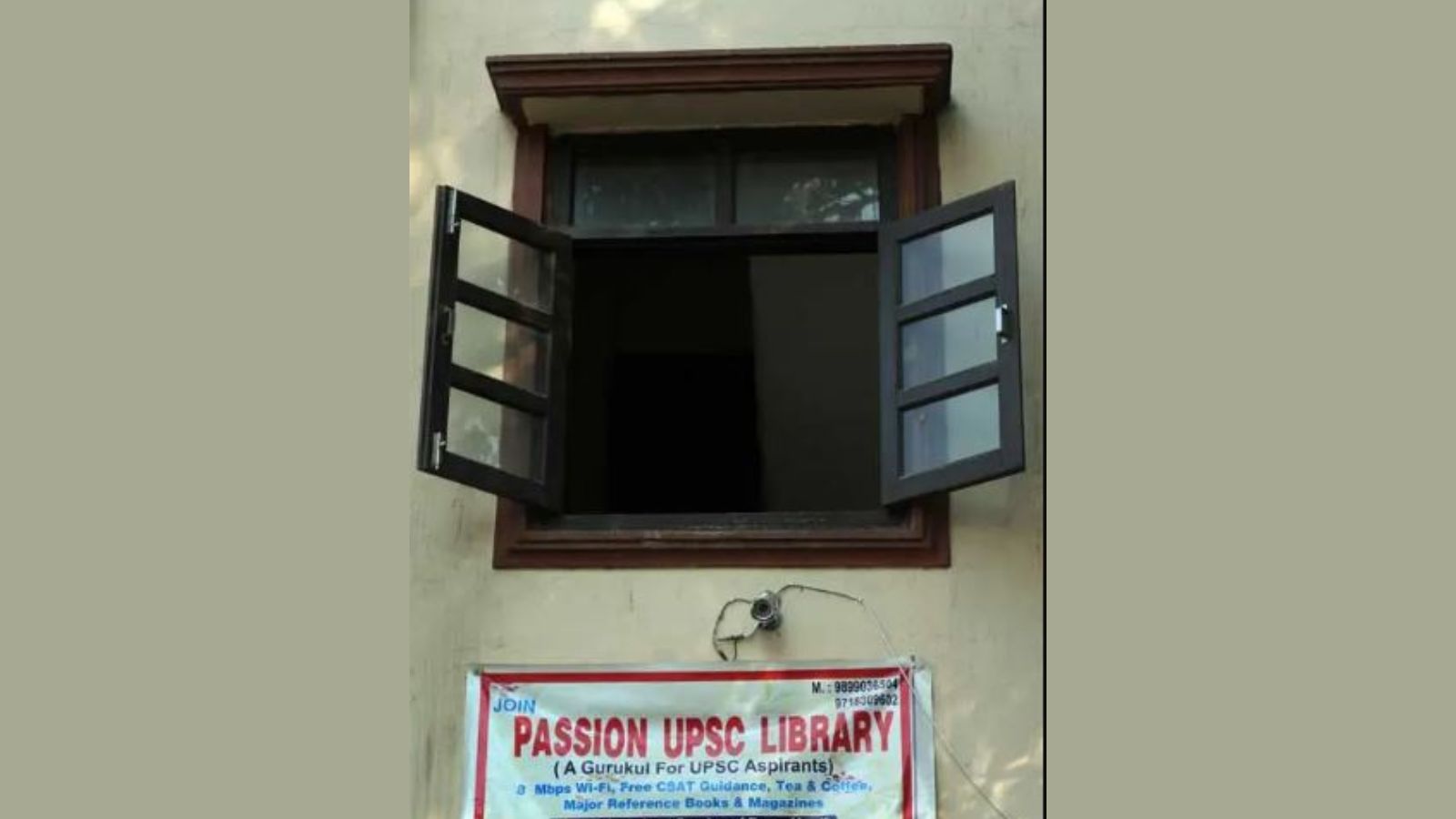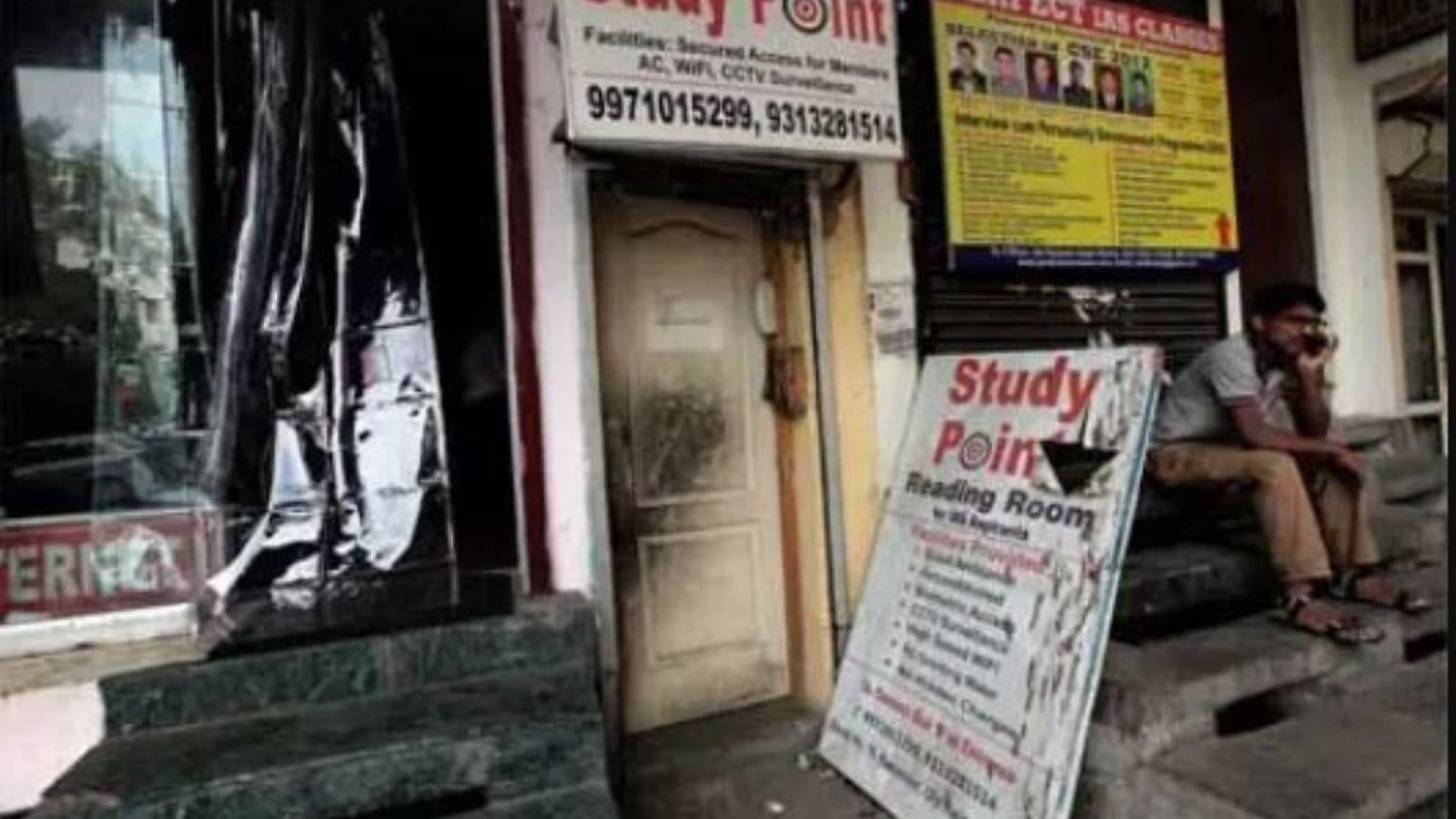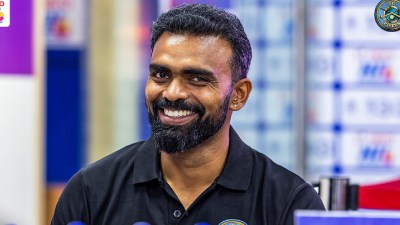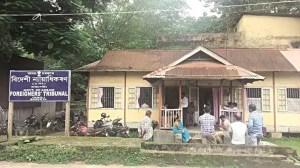When I was first moving to Old Rajinder Nagar to prepare for the Civil Services examination in 2015, my father asked me to prioritise two things — my health and aim, in that exact order. So I started my journey by picking a famous and expensive coaching institute.
Then came the best tiffin service (the cost of which I thought then guaranteed its hygiene and at least one “special” meal each week), a PG with all the amenities an aspirant would need and some like-minded aspirants to support me in my journey. Only after all these were in place, did I discover another integral element of my examination preparation journey — the libraries.

 The UPSC library became the centre of my examination journey — a place where I spent 15-16 hours each day. (Express file photo/Ravi Kanojia)
The UPSC library became the centre of my examination journey — a place where I spent 15-16 hours each day. (Express file photo/Ravi Kanojia)
When you decide to prepare for one of the most competitive examinations, UPSC libraries become a place to study with your own resources, away from your home and coaching classes. Most of these libraries are tucked away in basements of shops, residential flats and even coaching institutes in Old Rajinder Nagar, one of Delhi’s Union Public Service Commission (UPSC) hubs. Late on July 27, three UPSC aspirants drowned when flood water gushed into the basement of one such library in Old Rajinder Nagar.
Most UPSC libraries are common study centres that offer basic facilities such air conditioners, personal cubicles, Wi-Fi connectivity, personal lockers, etc., for a fee depending on the services availed. The expensive ones have a cafeteria and even biometric door locks. I needed to take my own books, notes, stationery and laptops to these libraries.
But after a failed first attempt, with regular coaching already over, I was left with only old notes to revise while sitting in my comfortable but expensive PG. I decided then that I had two options — to either return to my home town, Lucknow, or stay back and continue preparing. Then, there was the guilt — of wasting my parent’s money on my dreams. That guilt drove me to save money. So I downgraded to a cheaper accommodation, one that was just fit for a night’s sleep. It was then that the UPSC library became the centre of my examination journey — a place where I spent 15-16 hours each day. To save time, I even got all three of my dabbas (tiffins) delivered to the library itself.
 Just like coaching institutes, schools and colleges, it kept a track of aspirants who had studied in the library and had cleared the IAS exam. (Express File Photo/ Ravi Kanojia)
Just like coaching institutes, schools and colleges, it kept a track of aspirants who had studied in the library and had cleared the IAS exam. (Express File Photo/ Ravi Kanojia)
The library had everything but a bed for me to sleep in. Other than a comfortable seat, desk, personal locker, Wi-Fi and an air conditioner, I found company in other aspirants who came from different educational, economic and regional backgrounds. There were working professionals too who, after their day-long office hours, would spend the rest of their time in the library. There were those from Delhi too, who would come to the library either because they did not have enough of a “study environment” at home or to simply get a “feel” of competition.
My library had an interesting display board at the reception. Just like coaching institutes, schools and colleges, it kept a track of aspirants who had studied in the library and had cleared the IAS exam. The library owner once told me, “Just by looking at your face, I think you will clear IAS too. And I will put your picture up on this very display board.” What an achievement that would have been — and another advertisement.
Story continues below this ad
 Since most libraries were in basements and operated without any permits, these were usually the biggest culprits. (Express file photo/Ravi Kanojia)
Since most libraries were in basements and operated without any permits, these were usually the biggest culprits. (Express file photo/Ravi Kanojia)
But every story has two sides. Just like the struggles of an aspirant’s life — the repeated attempts, frequently bouts of illness, many changes of accommodations due to the landlord’s behaviour, waterlogging, unhygienic food, “mentors” who misguide, etc., — there were challenges when it came to the libraries too, no matter that they initially seemed to be the answer to all our problems.
When the heavens opened and the streets of Old Rajinder Nagar got waterlogged, the flooded basement libraries would be shut down. And this problem wasn’t as small as it sounds. Being addicted to a library set-up, it was difficult to study elsewhere. When exams were only a few weeks away, aspirants had no other option but to wait for nature to show some mercy. There was another all-too-frequent episode that happened in Old Rajinder Nagar — sudden drives by the government against illegal constructions.
Since most libraries were in basements and operated without any permits, these were usually the biggest culprits. With all our books and even laptops stowed in the libraries, we could only request the authorities for some time to retrieve our belongings. But did these libraries get shut down forever after government raids? Did we have no other place to go? No, the sealed libraries would open up. Failing that, we would find new ones hidden in unexplored basements of Old Rajinder Nagar’s labyrinthine lanes. And what a relief it was then — until we realised how risky it was to study under such a roof. But why did I still not return to the comfort of my house after repeatedly failing the exam and why did I continue to hunt for one library after the other? Ask an aspirant.



 The UPSC library became the centre of my examination journey — a place where I spent 15-16 hours each day. (Express file photo/Ravi Kanojia)
The UPSC library became the centre of my examination journey — a place where I spent 15-16 hours each day. (Express file photo/Ravi Kanojia) Just like coaching institutes, schools and colleges, it kept a track of aspirants who had studied in the library and had cleared the IAS exam. (Express File Photo/ Ravi Kanojia)
Just like coaching institutes, schools and colleges, it kept a track of aspirants who had studied in the library and had cleared the IAS exam. (Express File Photo/ Ravi Kanojia) Since most libraries were in basements and operated without any permits, these were usually the biggest culprits. (Express file photo/Ravi Kanojia)
Since most libraries were in basements and operated without any permits, these were usually the biggest culprits. (Express file photo/Ravi Kanojia)





























